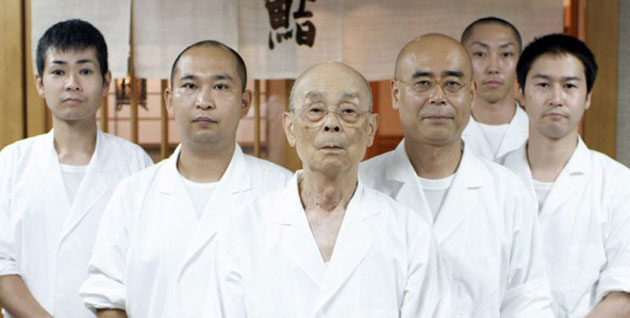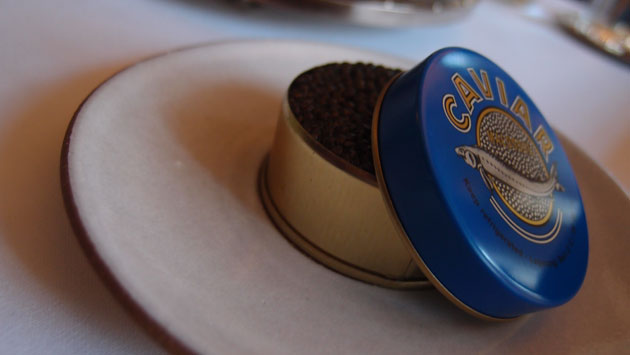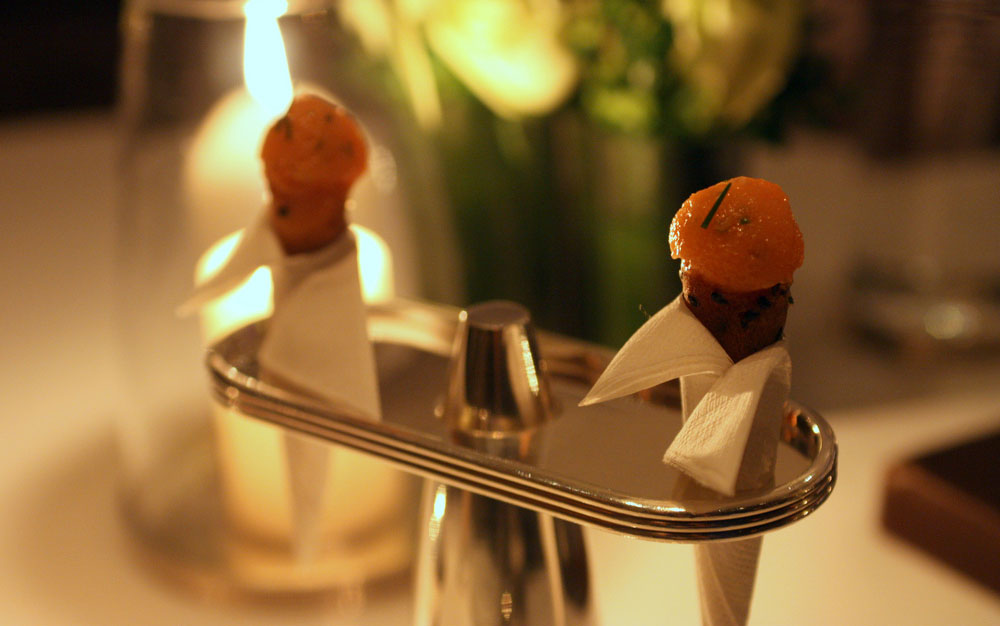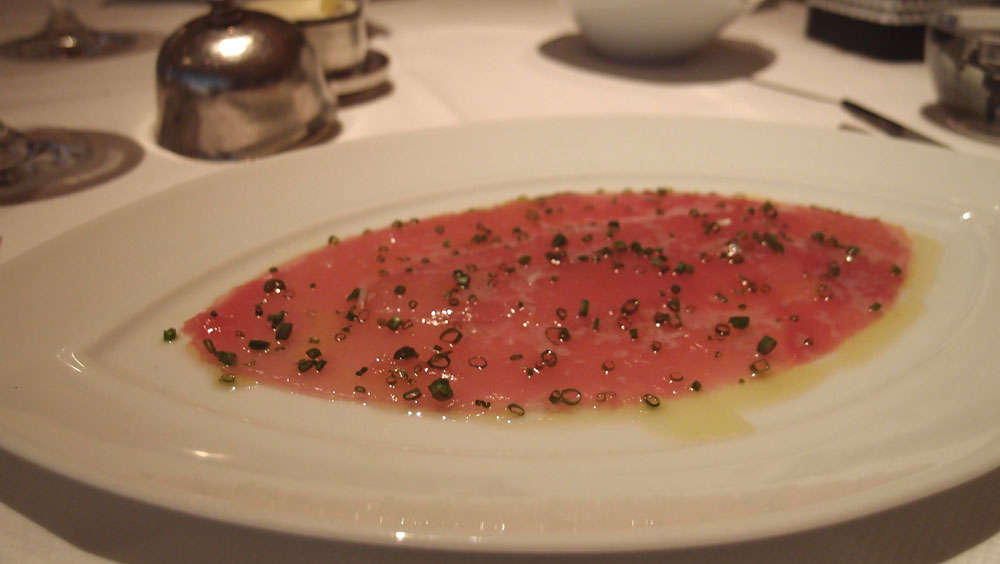Jiro Dreams Of Sushi is a documentary by David Gelb that explores the world of Michelin star winning sushi chef Jiro Ono. Jiro is eighty five years old and has been living out of home and making sushi since he was nine. That’s a formidable seventy six years of experience. Many eyebrows were raised when his restaurant was recognized by Michelin three years ago. The eatery only fits nine people, doesn’t have a bathroom and serves only sushi. And yet it won the highest possible rating given by Michelin – three stars – for Jiro and his chefs are fanatically devoted to sourcing and perfecting the art of preparing the greatest sushi in the world.
That said, you might wonder what a documentary about an eighty five year old man who repeats the same routine every single day, right down to the carriage he takes on the train to work, has to offer. As it turns out, plenty.
First, the obvious. This is a great food porn movie. There is shot after shot of sumptuous fresh sushi being served by Jiro and his apprentices. It looks amazing and I defy anyone not to have a rumble in their stomach by the time the credits roll.
The films goes to great lengths to show the craftsmanship that Jiro’s apprentices endure. Jiro doesn’t have any Gordon Ramsay style meltdowns in his kitchen but instead he demands a level of perfection that sounds arduous and beyond of the limits of most people. His aspiring chefs must go through a ten year apprenticeship to be recognized by Jiro. One exhasperated chef explains how he had his grilled egg sushi rejected by Jiro two hundred times before he finally accepted it as being worthy of being served to customers.
Not only does Jiro demand high standards of his chefs, he also has an almost godfather-like control over his produce. He sources his fish and rice from dealers who have an unspoken rule that they must exclusively offer their products to his restaurant and no one else. The documentary shows both a rice dealer and a tuna dealer semi-jokingly tell stories of turning away other prospective buyers out of respect to Jiro. Jiro sits in the background during these scenes, his face impassive.
I found the operation of Jiro’s restaurant interesting. His teaching method and micro-managing of the business seems to fly in the face of every modern business practise and convention. Only he alone has final say over the ingredients, food preparation, menu and even the seating plan in his restaurant. A food critic in Japan states with admiration that Jiro is inflexible, impatient and a perfectionist. And yet somehow it seems to work. I can genuinely believe that Jiro’s staff are happy despite the masochistic environment, long hours and insanely demanding boss that they work for. It’s just not a life for everyone. As his son recalls – “one apprentice lasted a day before quiting. Most just disappear without saying anything.”
The film tells an interesting, entirely male dominated, family history. Jiro explains that his father was an alcoholic and died when he was just nine. For all of Jiro’s demands of perfection in the kitchen, none of this behaviour is afforded to his father who he barely musters any care for. When they visit his tombstone, Jiro seems listless and bored. The flowers on his grave are dead but he has no interest in replacing them. He is almost a different person outside of his work.
Jiro himself admits he was an absent father, having worked long hours at the restaurant and being away from his two son’s childhoods. In the reverse of most parent/child relationships, his bond with his sons actually developed when they reached adulthood and began working in the kitchen. His eldest son Yoshikazu is the Prince Charles of sushi bars. He has patiently been waiting for his father to retire so he can assume the mantle of head chef. Jiro indicates that at eighty five, he has no intention of standing aside yet. Yoshikazu waits…and waits.
Whats curious is that almost no attention is paid to Jiro’s mother or wife. The women in the Ono family remain shrouded in mystery.
The film also delves into Jiro’s beliefs that Japan needs to switch to a sustainable model for its fishery industry and not put profit before environmental responsibility. It gives a glimpse into how the ingredients are selected at the markets. It gives us the opinions of customers, critics and admirers of Jiro’s work. And it gives us Jiro himself, a stoic poker-faced workhorse who barely misses a day of work in his life and has devoted himself for three quarters of a century to honing his craft.
This is a fascinating documentary and provides plenty of conversation points in its eighty minute running time. It offers a great insight into one family’s passion for food, for one another and for the continuation of a cultural discipline that is hard to comprehend.
 The FAT Website est. 1999
The FAT Website est. 1999





